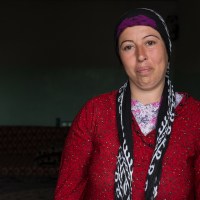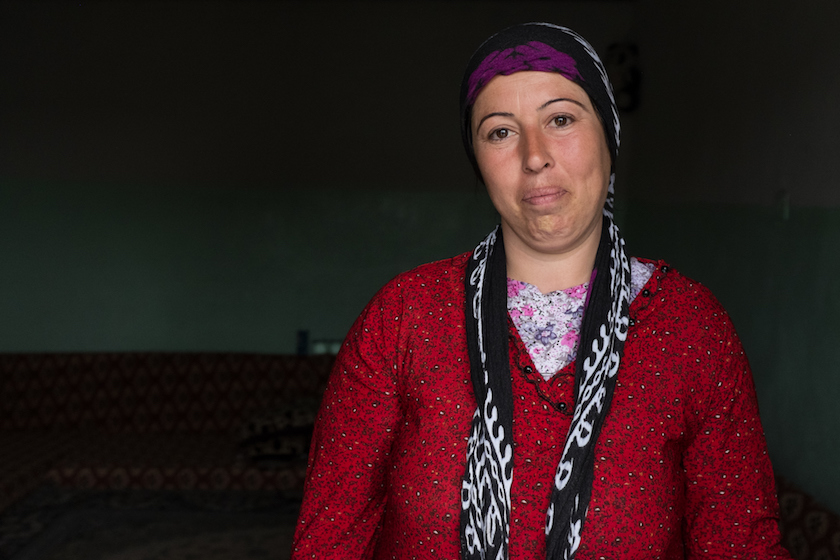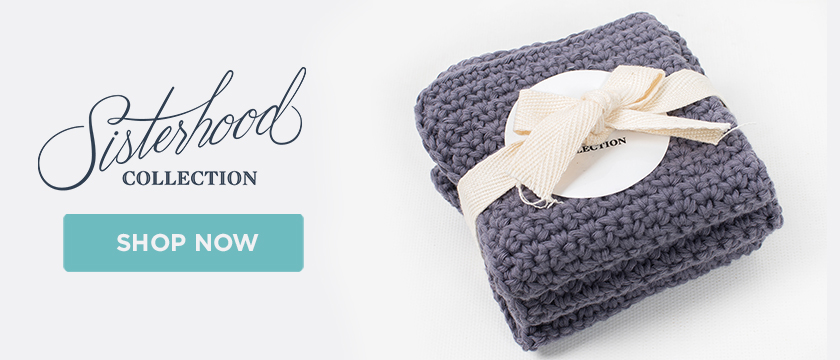From where we sit in the dark room, opposite the door so light can stream in across our faces, we can just make out a tiny, blue bird in a bamboo cage. We hear the song before we see the cage—this sweet little bird sings constantly.
“I love this bird!” Nasirin smiles as she talks about the Syrian village where she lived, their small caretaker’s house in an orchard where she and her husband worked as gardeners, and the village trees filled with birds.
This simple songbird reminds her of home.
Nasrin’s eyes sparkle. There is such a lightness about her, it catches us off-guard.
Some of the refugee families we work with to build businesses are in desperate situations. These families need to make an income immediately, or their children will continue to suffer. They work hard, but there is little room for error and little space for creativity.
Nasrin’s situation is different. She and her family came to Iraq in 2013, fairly early in Syria’s civil war. They’ve invested a ton of hard work into rebuilding their lives over the past four years, and their early arrival to the refugee camp afforded them some good opportunities. Her husband secured a job as a garbage collector in the camp and spends each morning criss-crossing the narrow alleys retrieving rubbish. His afternoons and evenings are spent at a barber shop, waiting for clients that might want a cut. Between the two jobs, the hours are long and the pay still isn’t much. But it’s enough to stave off desperation.
That has made all the difference.
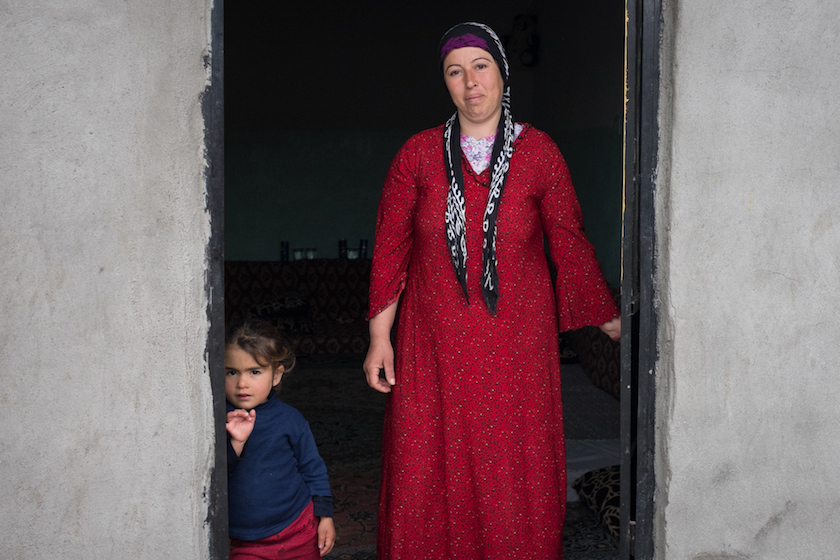
Nasrin’s daughter, Aren, plays around us as we talk. She moves our piles of notebooks, purses, glasses and phones from one spot to another, taking care in her arrangements. She’s a busy girl! She is also Nasrin’s best form of advertisement for her sewing and crocheting business. Aren often wears beautiful clothes made by her mother, sometimes refashioned from older clothes, so her neighbors can see her skills.
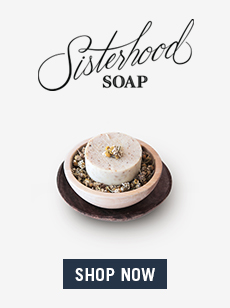
After the local New Year at the end of March, her neighbors had no more need for celebration clothes, and Nasrin saw demand for her sewing skills drop. She shifted her energy to crocheting decorative vests and cover-ups which her neighbors can use to freshen the look of clothes they already own.
She’s always thinking about how to create beautiful, functional pieces her community will want to buy.
When Nasrin talks about creating things with her hands, the same sparkle comes to her eye as when her bird sings—she is a woman transformed. The Syrian town where she grew up had a specialty arts school. That’s where Nasrin learned to sew, and where her creativity was nurtured—it’s a quality she’s passing on to her children.
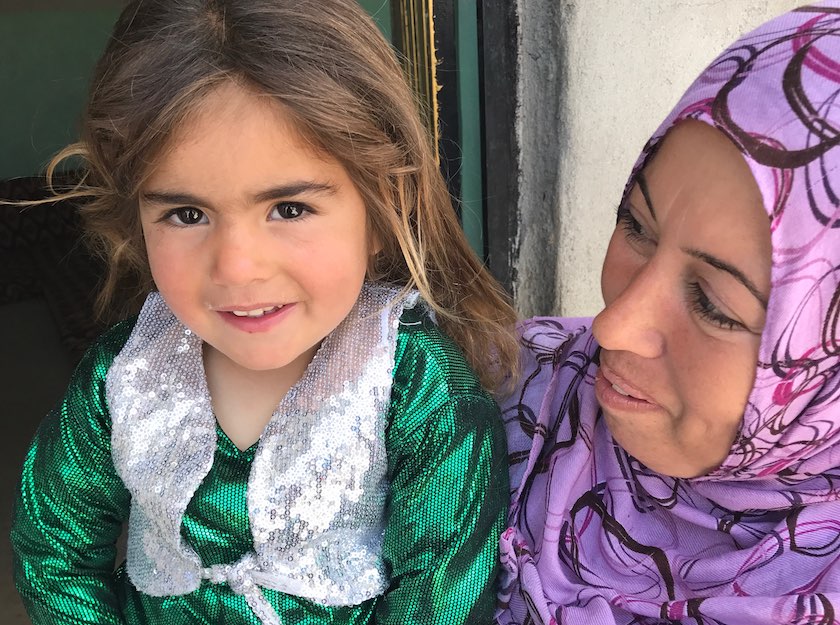
We ask about her dreams for her children, and her answer comes instantly, “Whatever they’d like to do!” Her oldest son, Ahmed, is thirteen years old. He isn’t as interested in school as his mom was and spends his mornings at the same barber shop where his father works later in the day. He offers free haircuts to his friends. The neighborhood boys don’t have money for haircuts, and Ahmed needs heads to practice on—it’s a trade that has worked out well for all of them. Nasrin even sketches out patterns that her son incorporates into his short-cropped clipper cuts.
This capacity to dream is a luxury. Nasrin works hard at her business and experiments with creating products to sell, knowing her income is invaluable to her family, but at the same time knowing that her children won’t go to bed hungry if she makes a wrong move.
She lives in the same kind of tiny, concrete block house as her neighbors in the refugee camp. And, like her neighbors, she struggles to keep her home and business running on a handful of hours of electricity each day. Her home is spare—there are no frills here except one tiny, blue bird that fills the space with song.
But because of your investment in her business, Nasrin’s home is as full of hope as it is of sound.
Every purchase from the Sisterhood Collection—our soaps, candles, knit washcloths, etc.—supports entrepreneurs like Nasrin. Not with a handout, but with an investment in their future based on our belief that people can change their own lives if they have the resources to do so.
Shop now and invest in a brighter future for refugee families.

